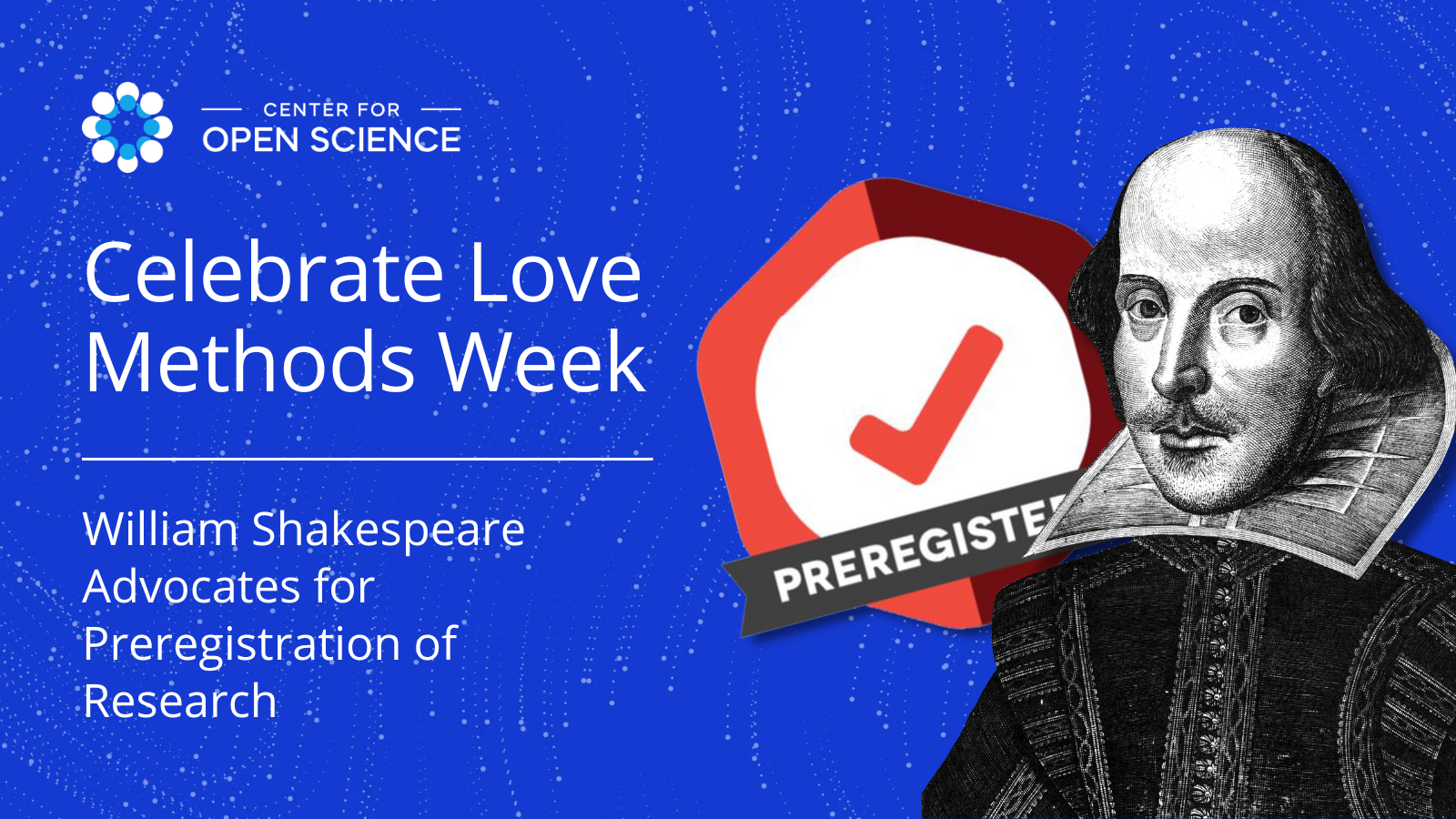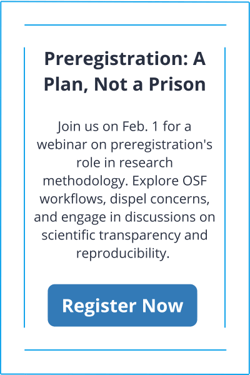
 It’s Love Methods Week, and there is an abundance of love to go around. Our friends across research communities and infrastructure have much to share this week and we are thrilled to join them in demonstrating our passion for rigorous research methods.
It’s Love Methods Week, and there is an abundance of love to go around. Our friends across research communities and infrastructure have much to share this week and we are thrilled to join them in demonstrating our passion for rigorous research methods.
In our contribution we will check in with the seeds of a budding methods romance: preregistration.
"A rose by any other name would smell as sweet"1
William Shakespeare’s Juliet is not hung up on Romeo’s family name, and likewise we don’t want nomenclature to be a barrier to falling into the throes of passion with preregistration as a valuable research method.
You can think of preregistration as your “analysis plan”. Like your data management plan, you have already conceived of almost everything you will be sharing in the methods section of your paper in a few months, including your hypotheses, methodology, and data analysis strategies. Preregistration is simply an opportunity to document these before you collect your data or proceed with your experiments, providing an opportunity for you and others to compare your initial expectations to the results of the study. This act serves as a commitment to transparency and objectivity, while also preparing much of your eventual research paper long before crunch time.
“Love is not love
Which alters when it alteration finds,
Or bends with the remover to remove:
O no! it is an ever-fixed mark
That looks on tempests and is never shaken.”2
Was Shakespeare a fan of preregistration? Probably! Or at least his commitment to rigor and consistency is aligned with the value of documenting your analysis plan.
Trends in publishing show that positive results are published more frequently than negative or null results, and researchers will adjust their stated analysis plans to better fit this narrative. While this seems harmless enough, it does risk a gap that makes results difficult to reproduce. Even complete data and experimental results will remain unpublished if they do not grab the attention of journals, meaning that potentially foundational findings are lost before they were ever found.
"This above all: to thine own self be true,
And it must follow, as the night the day,
Thou canst not then be false to any man."3
Hamlet is given a great deal of advice in the show that bears his name, and Shakespeare clearly had research methods on his mind in this exchange. The researcher’s integrity, demonstrated by sharing an analysis plan along with other study materials, strengthens both their own standing as well as trust in similar research endeavors.
Still, preregistration is designed for you to describe your plan, not to lock you away in a methodological prison. Sometimes circumstances change, and the work that you have already committed should be capable of changing with them. You can update your analysis plan at any time, with updates being logged and appended with an explanation of the changes.
"Our remedies oft in ourselves do lie,
Which we ascribe to heaven."4
Shakespeare understood that acknowledging the absolute importance of clear, complete methods can be difficult to communicate when sharing scientific results, particularly outside of your own domain.
When the primary sources of scientific information are 60-second news packages or short news articles, it is easy to imagine the findings of a widely publicized study appearing suddenly rather than as a result of months or years-long processes. It should be clear that your well-conceived and well-implemented methods, in addition to the hard work of you and your team, are the source of these findings. This only strengthens the argument for documentation of methods early and often. Evidence suggests that preregistration, shared data, and other transparency measures increase reader trust in scientific results, even for public audiences.
"Wisely and slow; they stumble that run fast."5
Ultimately, this is where the value of integrating preregistration into your project life cycle is found. It may seem like just one more step in your already busy research schedule, but it acts as a signal of trust for those that cite and build on your work while keeping your own plans and processes clear and documented throughout the study. The commitment to rigor and transparency will help you communicate your findings more effectively, while streamlining your own methods documentation and sharing when completing one project and beginning others. This may take some time to develop early on in your study, but will contribute to completing valuable, reproducible research.
The COS team is here to help you, whether you are refining one of many preregistrations or you are experimenting with analysis plans for the very first time. A new COS webinar brings the new and best information about preregistration, while members of the team are also available to work with you directly. Sign up to chat with us over the next week to get a special COS Valentine shoutout for you and your research project!
1Shakespeare, William. Romeo and Juliet, 1597.
2Shakespeare, William. "Sonnet 116", 1609.
3Shakespeare, William. The Tragedy of Hamlet, Prince of Denmark, 1603.
4Shakespeare, William. All's Well that Ends Well, 1623.
5Shakespeare, William. Romeo and Juliet, 1597.

6218 Georgia Avenue NW, Suite #1, Unit 3189
Washington, DC 20011
Email: contact@cos.io

Unless otherwise noted, this site is licensed under a Creative Commons Attribution 4.0 International (CC BY 4.0) License.
Responsible stewards of your support
COS has earned top recognition from Charity Navigator and Candid (formerly GuideStar) for our financial transparency and accountability to our mission. COS and the OSF were also awarded SOC2 accreditation in 2023 after an independent assessment of our security and procedures by the American Institute of CPAs (AICPA).
We invite all of our sponsors, partners, and members of the community to learn more about how our organization operates, our impact, our financial performance, and our nonprofit status.